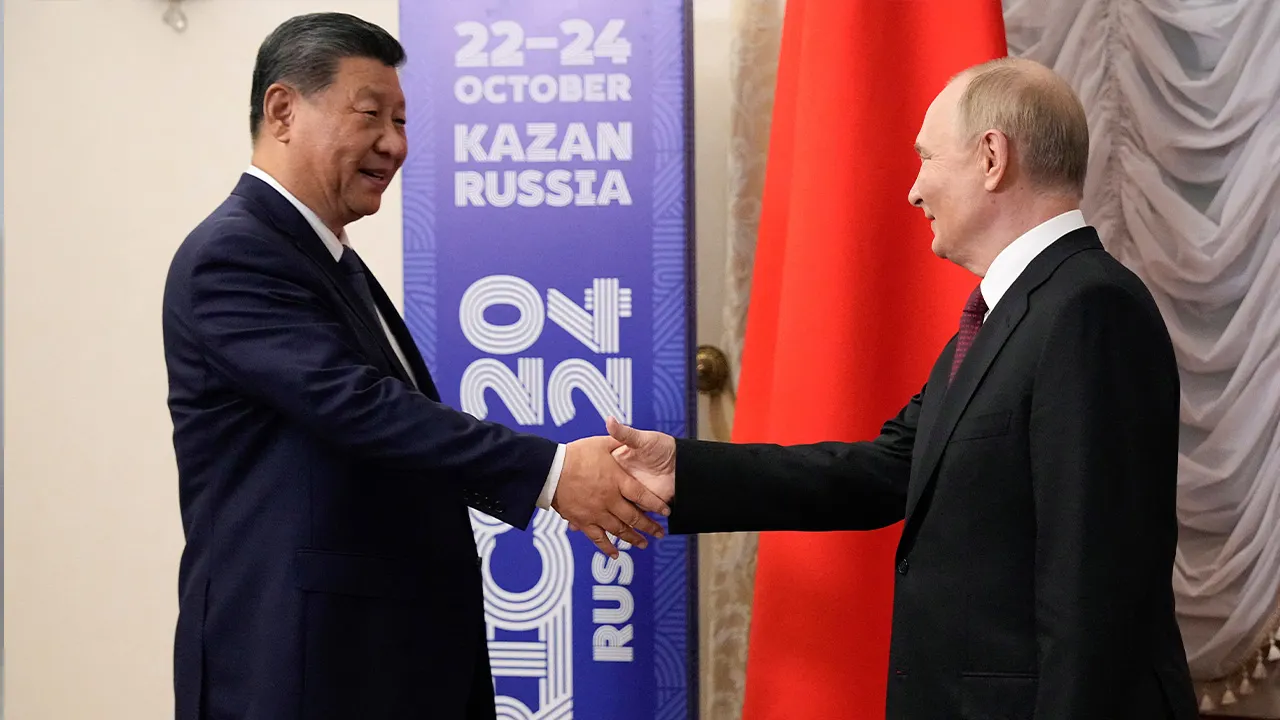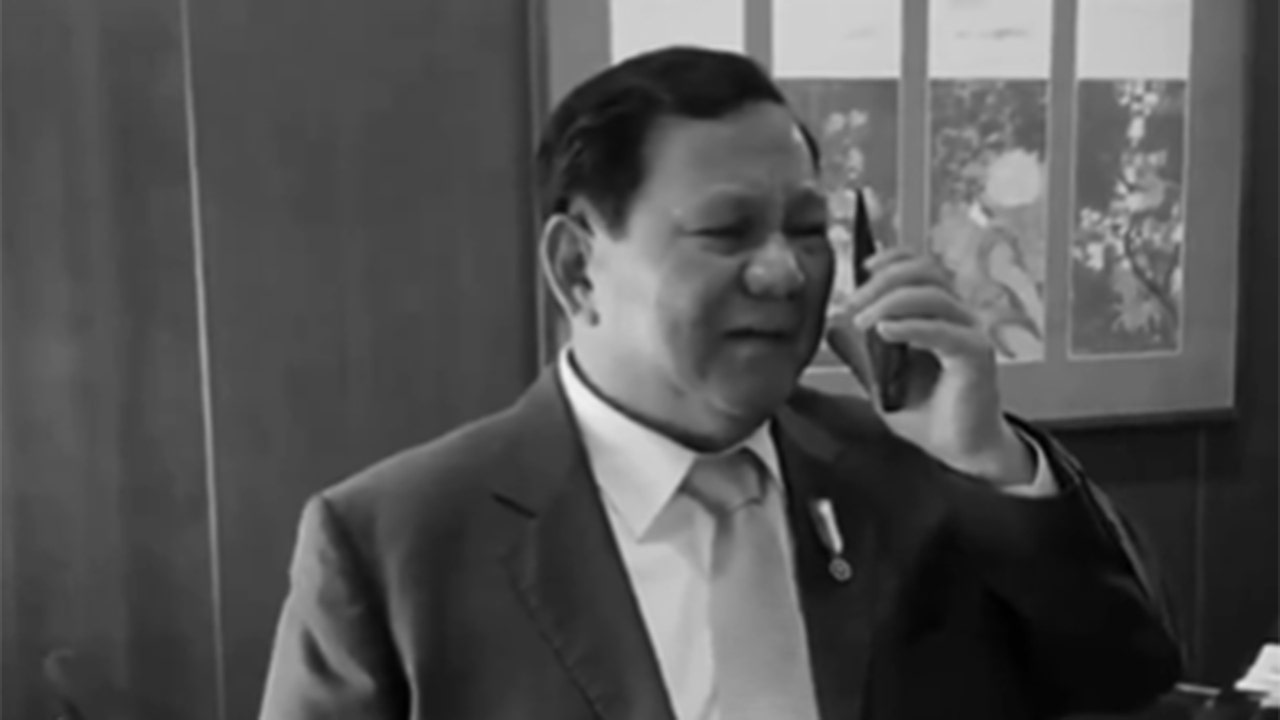World
Rifts in Europe over irregular migration remain after ‘success’ of new EU deal
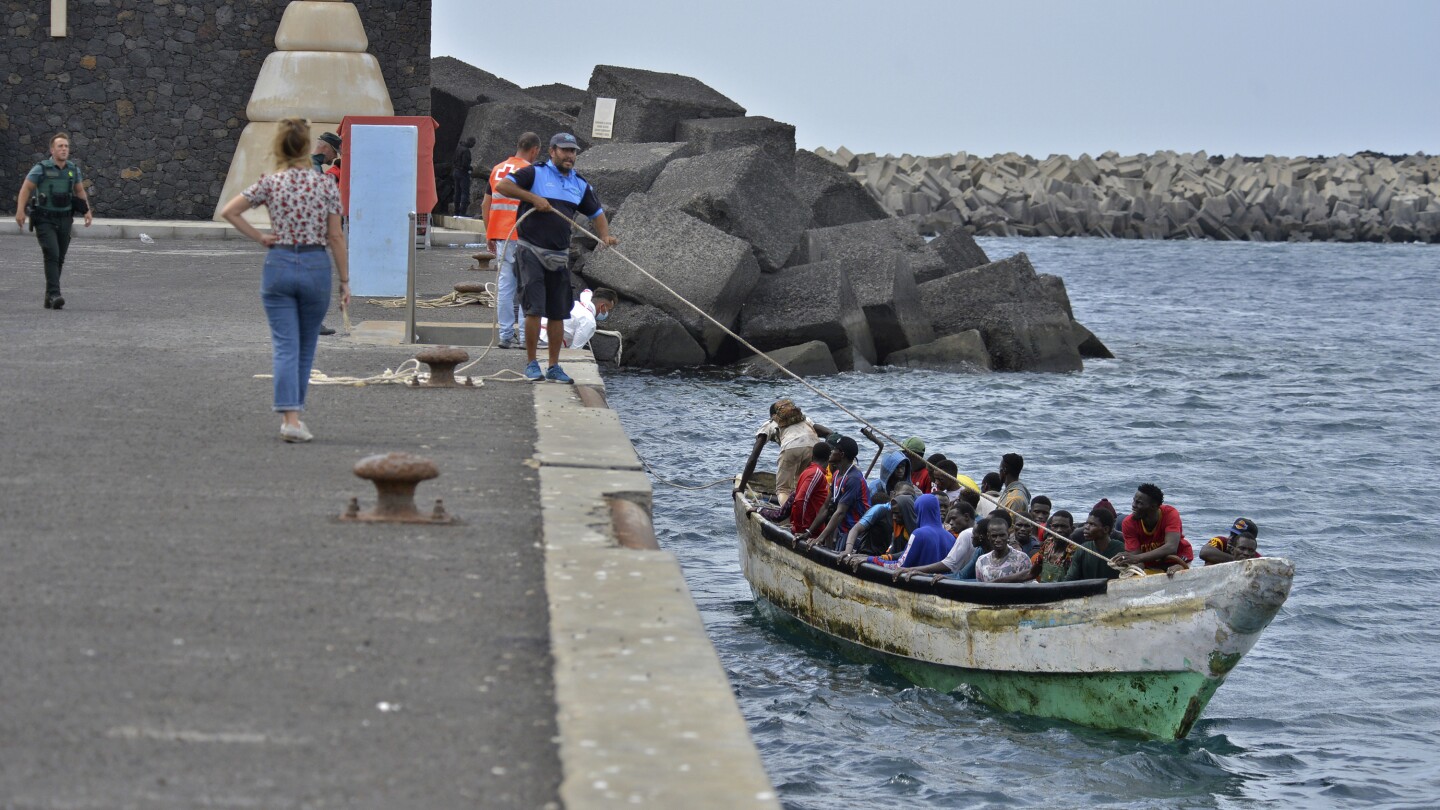
GRANADA, Spain (AP) — Despite a breakthrough in negotiations earlier this week, the leaders of the European Union immediately clashed again Friday on how to handle the human drama of migration that has tested their sense of common purpose over the past decade.
The world’s largest club of wealthy countries remains split between those that support Brussels’ initiatives focused on distributing migrants between members in an act of solidarity and those countries, like Hungary or Poland, whose far-right governments consider the influx of outsiders a threat. Italy is even going outside the EU to establish links with the United Kingdom to crack down on unwanted arrivals.
Hungarian Prime Minister Viktor Orbán was blunt about how far Europe’s leaders still are from reaching a consensus before they met in Granada, Spain. Orbán, who has pushed back against EU policy repeatedly and taken a hard-line approach against migration, said that he won’t sign off on any deal at any point in the foreseeable future. He went as far as to compare the situation to being “legally raped” by Hungary’s fellow EU members.
“The agreement on migration, politically, it’s impossible — not today (or) generally speaking for the next years,” Orbán said. “Because legally we are, how to say it — we are raped. So if you are raped legally, forced to accept something what you don’t like, how would you like to have a compromise?”
The dispute is over an agreement struck on Wednesday that, if it becomes policy, would involve setting up processing centers on the EU’s outside borders to screen people as they arrived. The deal, agreed by a majority of the EU’s interior ministers, will now go to the European Parliament, where further negotiations will take place before it can become binding.
Polish Prime Minister Mateusz Morawiecki also bashed the deal, maintaining his government’s position that it keeps migrants out for security reasons. Both Poland and Hungary flatly refuse any shared responsibility for migrants arriving to other member states.
European Commission President Ursula von der Leyen, however, remained optimistic when she took her turn before the microphones just moments after Orbán. She called the deal a “big success.”
“Now the probability is very high and I’m confident that we will it over the finish line,” Europe’s top executive said.
Neither Hungary or Poland could veto a final pact, but their refusal to comply with European policy in the past has bordered on provoking institutional crises, and the bloc would be eager to avoid similar tensions with its eastern members.
The EU has been trying to forge a new common policy on migration ever since it was overwhelmed in 2015 by well over 1 million arrivals, mostly refugees fleeing war in Syria. Since then it has focused on paying countries like Turkey, Libya, Tunisia and Morocco to do the dirty work of stopping migrants before they embark on the dangerous journey across the Mediterranean Sea, where nearly 30,000 people have died since 2014, according to the UN migration agency.
A draft of a New Pact on Migration and Asylum, which has been criticized by human right groups as conceding ground to more hard-line approaches, was touted as the answer to the EU’s migration woes when it was made public in September 2020.
For the scheme to enter into force, officials and lawmakers say, an agreement must be reached between a majority of member countries and parliament by February before EU elections in June.
European Parliament president Roberta Metsola said she was hopeful this would finally get done.
“I remain optimistic because what had kept us behind in the past was that there was no political will,” Metsolas said. “There is no silver bullet, but let’s not kill this pact before we adopt it. We owe it to ourselves and to our citizens.”
Migration flows into the EU have been on the rise this year, even if they are down from the 2015-16 peak. From January to October, some 194,000 migrants and refugees reached Spain, Italy, Malta, Greece and Cyprus by boat, compared to 112,000 in the same period last year, according to the International Organization for Migration.
The issue of migration was not going to be a priority of this informal meeting, where leaders already had the prickly question of how to continue with expansion to include the Balkan countries and a Ukraine that is immersed in battling Russia’s invasion.
But migration was put on the agenda by Italy’s far-right Premier Giorgia Meloni. Italy has seen an influx of people arriving in recent months, including the arrival of 7,000 people to the tiny fishing island of Lampedusa on a single day last month.
Meloni and Britain’s conservative prime minister, Rishi Sunak, announced Friday in an op-ed article published in Corriere della Sera and The Times of London newspapers that they were forming an alliance against illegal migration in a bilateral move beyond Brussels’ sphere of influence.
The one-day summit in the picturesque city of Granada is just an hour’s drive from Spain’s southern coast, where boatloads of people fleeing violence or poverty in Africa wash up regularly.
Spain’s marine rescue service reported Friday it had intercepted another 500 migrants in six boats approaching the Canary Islands located off the northwest coast of Africa. Previously this week, the archipelago’s tiny El Hierro island, pop. 10,000, took in 1,200 migrants arriving in open wooden boats that are believed to have departed from Senegal on the hazardous journey northward.
___
Wilson reported from Barcelona. Raf Casert in Brussels, Ciarán Giles in Madrid, Colleen Barry in Milan, Vanessa Gera in Warsaw and Danica Kirka in London contributed.

World
Video: Israel and Hezbollah Trade Deadly Attacks

Israeli strikes pounded areas in the southern suburbs of Beirut, a day after eight people were killed, according to the authorities, in the northernmost attack on Lebanese soil since the start of the war. Israeli officials said two men were killed in a rocket attack from Lebanon on Tuesday.
World
Germany braces under collapsing government and looming Trump trade war
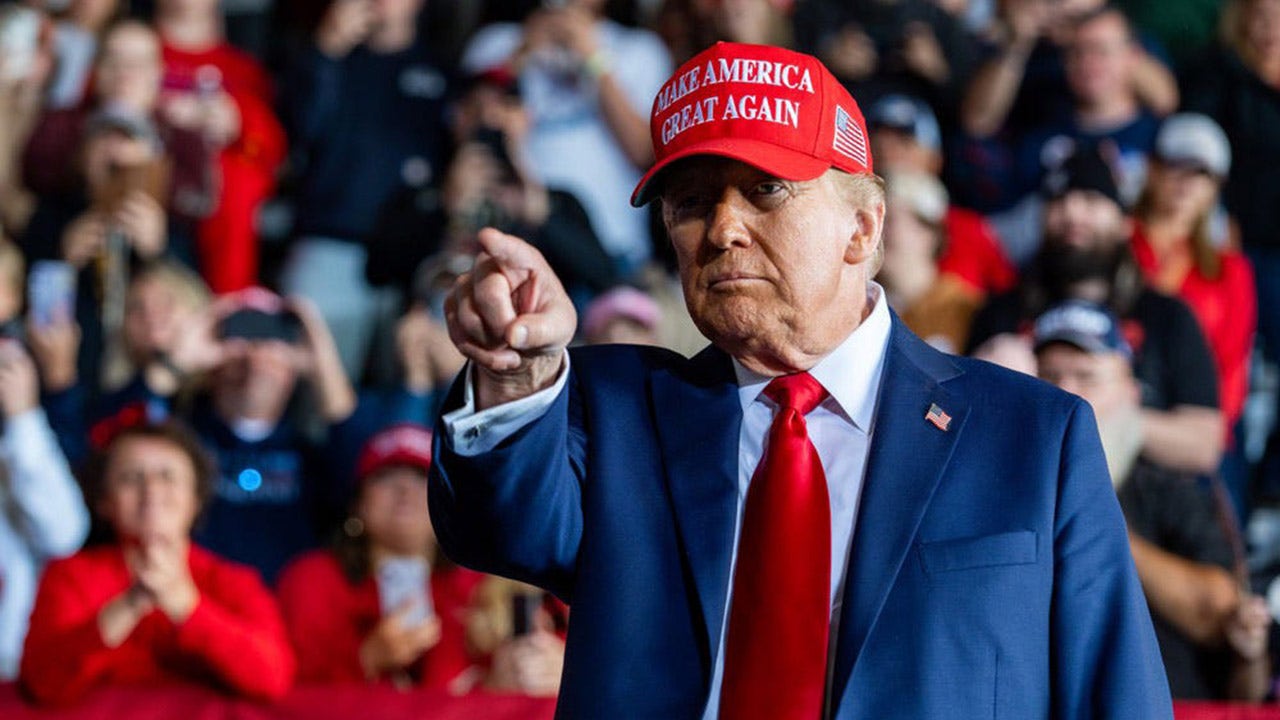
With the re-election of former President Donald Trump to the White House and the collapse of the coalition government under German Chancellor Olaf Scholz, Germany is bracing for an economically and politically dubious time.
From the campaign trail, Trump pledged to increase import tariffs on friends and foes alike under the “Trump Reciprocal Trade Act” which would increase all U.S. tariffs to match the taxes enforced by each corresponding country.
“If India, China, or any other country hits us with a 100 or 200 percent tariff on American-made goods, we will hit them with the same exact tariff,” he outlined in his campaign agenda. “If they charge US, we charge THEM—an eye for an eye, a tariff for a tariff, same exact amount.”
Former President Donald Trump speaks to a rally crowd on Sunday, Oct. 6, 2024 at the Dodge County Airport in Juneau, Wisconsin. (Jovanny Hernandez/Milwaukee Journal Sentinel / USA TODAY NETWORK via Imagn Images)
GERMANY’S SCHOLZ REJECTS CALLS FOR NO-CONFIDENCE VOTE AS COALITION GOVERNMENT COLLAPSES
However, it is unclear if the president-elect still plans to push these specific tariff increases, as he has also suggested there should be a 10% tariff on imports from all countries, as well as 60% duties on imports from China, according to a Reuters report.
China was not the only country in Trump’s crosshairs, as the now president-elect also referred to the European Union (EU) as a “mini China” and warned the bloc would have to pay up.
“They don’t take our cars. They don’t take our farm products. They sell millions and millions of cars in the United States,” he told supporters at an October rally in Pennsylvania. “No, no, no. They are going to have to pay a big price.”
Some economic experts have warned that increasing tariffs – which are paid by companies importing the goods, not by government entities – could lead to rising costs worldwide, including in the U.S., as well as further inflation.
A report earlier this month by the German Marshall Fund (GMF) pointed to findings by Germany’s Institute for Economic Research in Cologne that said the promised Trump tariffs are estimated to cost the country roughly $127 billion over the next four years.

German Chancellor Olaf Scholz leaves the Bellevue Palace in Berlin on Thursday, Nov. 7, 2024. (AP Photo/Ebrahim Noroozi)
FEDERAL MILITARY DRAFT AGENCY REPOSTS MESSAGE SUGGESTING US IS BECOMING 1936 NAZI GERMANY: REPORT
“Trump’s victory does not bode well for a Germany that is dependent on U.S. security and thrives on open markets,” the GMF said in its report on how the U.S. election will impact Germany. “And uncertainty in Europe’s largest economy is not ideal when the EU needs to find its place in a world in which the U.S. president is not expected to support the traditional, rules-based international order.”
However, it is not only Germany’s flagging economy that could spell uncertainty for Berlin’s international standing, as Scholz faces a vote of no confidence in January after he fired his Finance Minister Christian Lindner and his coalition government collapsed.
A confidence vote is now set to be held in Germany on December 16 – which Scholz, given his minority status, is expected to lose.

European Commission President Ursula von der Leyen speaks during a debate at the European Parliament in Strasbourg, eastern France, on Jan. 17, 2024. (Frederick Florin/AFP via Getty Images)
The most likely next step will be for German President Frank-Walter Steinmeier to dissolve the parliament and call for elections which are not expected to be held on Feb. 23, 2025.
The EU now stares down a potential trade war with the Trump administration while one of its leading nations, both geopolitically and economically, will essentially sit as a lame duck while Berlin waits to see who will be next to lead the country.
German opposition leader Friedrich Merz – who could find himself the next German chancellor – said he intends to cut a deal with Trump.
In an interview with Stern magazine, Merz reportedly said, “In Germany, we have never really articulated and enforced our interests well enough, and we have to change that.
“The Americans are much more on the offensive. It shouldn’t end with only one side profiting, but rather with us making good arrangements for both sides,” Merz said according to a Bloomberg report on the interview. “Trump would call it a deal.”
World
There is no safe zone in Gaza, warns UNRWA
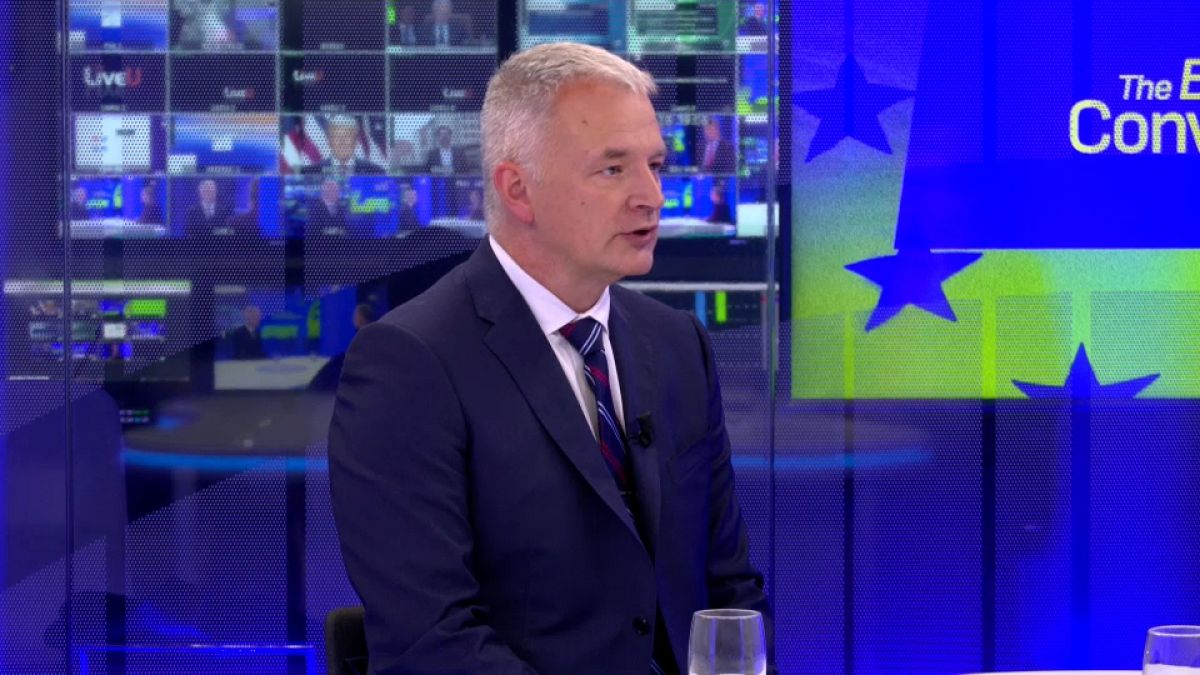
UNRWA’s Scott Anderson described the humanitarian situation in Gaza as critical and called on all sides to respect civilian safe zones.
The humanitarian situation in the Gaza Strip remains critical and could deteriorate further, warns the UN Relief and Works Agency for Palestine (UNRWA).
Speaking to Euronews in Brussels, UNRWA Director in Gaza, Scott Anderson, called on all parties to the conflict to respect the sanctity of safe places for civilians.
“There’s nowhere safe in Gaza. Including the safe zones. And unfortunately, all parties to the conflict are not respecting the sanctity of sites that should be safe for civilians, including hospitals and schools.” said Anderson.
He stressed that both UNRWA facilities and Palestinian schools have been targeted, appealing to all sides to uphold the protection of these locations so civilians can find safety for themselves and their families.
Too cosy with Hamas?
Anderson also responded to past allegations that his agency was too lenient with Hamas, which the EU designates as a terrorist organisation.
He underlined that UNRWA took swift action after discovering that some of its employees were linked to the group.
When asked if he could confidently say that UNRWA had removed all Hamas operatives, Anderson was frank in his reply:
“No, I don’t think anybody can say anything with certainty about their workforce anywhere. We have over 13,000 people. We do take ‘neutrality’ very seriously, as shown by the commissioner general’s very swift action. But no, I can’t with certainty say that’s done,” he said.
Anderson also reiterated that they don’t have any evidence of employing Hamas members, and if they did, the necessary actions would have already been taken.
You can watch the full interview on the situation in Gaza on Thursday and online at euronews.com.
-

 Culture1 week ago
Culture1 week agoYankees’ Gerrit Cole opts out of contract, per source: How New York could prevent him from testing free agency
-

 Culture1 week ago
Culture1 week agoTry This Quiz on Books That Were Made Into Great Space Movies
-

 Health5 days ago
Health5 days agoLose Weight Without the Gym? Try These Easy Lifestyle Hacks
-

 Culture4 days ago
Culture4 days agoThe NFL is heading to Germany – and the country has fallen for American football
-

 Business3 days ago
Business3 days agoRef needs glasses? Not anymore. Lasik company offers free procedures for referees
-
/cdn.vox-cdn.com/uploads/chorus_asset/file/25538361/247196_Echo_Spot_Review_8A0A1511_CVirginia.jpg)
/cdn.vox-cdn.com/uploads/chorus_asset/file/25538361/247196_Echo_Spot_Review_8A0A1511_CVirginia.jpg) Technology1 week ago
Technology1 week agoAmazon’s Echo Spot alarm clock is on sale with a free color smart bulb
-

 Sports4 days ago
Sports4 days agoAll-Free-Agent Team: Closers and corner outfielders aplenty, harder to fill up the middle
-

 News1 day ago
News1 day agoHerbert Smith Freehills to merge with US-based law firm Kramer Levin















